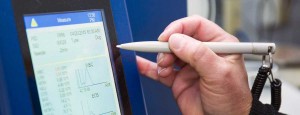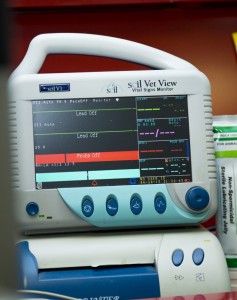 Hanahan Veterinary Clinic is a small animal practice that provides many surgical services with a personal touch. We have a diagnostic laboratory, surgery room and on-site radiology. We provide a full range of options to aid in a complete diagnostic work-up to evaluate your pet’s medical needs prior to anesthesia. Our Doctors and staff are well trained and experienced. We make a conscientious effort to provide continuing education both on and off-site to all our staff to keep us on the cutting edge of medicine and surgical services. During our surgeries we monitor blood pressure, heart rate, oxygen saturation, and body temperature with a body system monitoring machine. Surgery patients receive either IV fluids or SQ fluids during the procedure as well as pain management control.
Hanahan Veterinary Clinic is a small animal practice that provides many surgical services with a personal touch. We have a diagnostic laboratory, surgery room and on-site radiology. We provide a full range of options to aid in a complete diagnostic work-up to evaluate your pet’s medical needs prior to anesthesia. Our Doctors and staff are well trained and experienced. We make a conscientious effort to provide continuing education both on and off-site to all our staff to keep us on the cutting edge of medicine and surgical services. During our surgeries we monitor blood pressure, heart rate, oxygen saturation, and body temperature with a body system monitoring machine. Surgery patients receive either IV fluids or SQ fluids during the procedure as well as pain management control.
At Hanahan Veterinary Clinic we provide many surgical such as:
- Spays & Neuters
- Dental surgery
- Gastropexy
- Soft tissue mass removal
- Most emergency surgical procedures
How to Prepare Your Pet for Surgery
Dropping off your pet for surgery can be stressful for you and for your furry companion. By educating yourself beforehand, you will have a clear understanding of what your pet will experience during his or her hospital stay, and you will be able to prepare your pet for surgery as well as recovery after discharge.
Preparing Your Pet The Night Before Surgery
A certified team member will inform you of all pre-surgical preparations. Since your pet will be placed under general anesthesia, an examination and blood screening is required prior to surgery. Anesthetic agents are processed through the kidneys and liver; the blood panel will confirm that these organs are functioning optimally. Blood cell counts will detect signs of anemia or if any infection is present. If you notice any signs of illness in your pet prior to dropping off for surgery, such as vomiting, diarrhea, coughing, sneezing, lethargy, or decrease in appetite prior to being fasted, be sure to alert the hospital staff.
Your pet will need to fast after midnight the night before surgery, meaning no food overnight. Pick up the food bowls either at midnight or before bedtime, whichever comes first. Your pet may have water overnight; remove the water bowl when you get up in the morning. Puppies and some toy breeds should not be completely fasted, as these little ones are prone to hypoglycemic episodes. Be sure to discuss with your veterinarian what will be best for your individual pet.
Your Pet Has Been Admitted. What Happens Now?
Your pet will need to be dropped off between 8am – 8:30am the morning of their procedure.
If necessary, a sedative will be administered to calm your pet. An intravenous catheter will be placed for your pet to receive fluid therapy during the surgery and recovery periods, which will keep your pet hydrated and also play a role in helping to maintain ideal blood pressure. Your pet will be induced with an injectable anesthetic agent, and then intubated and placed on an inhalant form of anesthesia. Your pet will be surgically prepared and hooked up to leads that will monitor oxygen levels, heart rate, and blood pressure.
While these proceedings are taking place, be proactive by preparing an area in your home for your pet’s recovery over the days following surgery. Upon discharge you will be provided with a list of post-surgical instructions for your pet’s recovery period.
